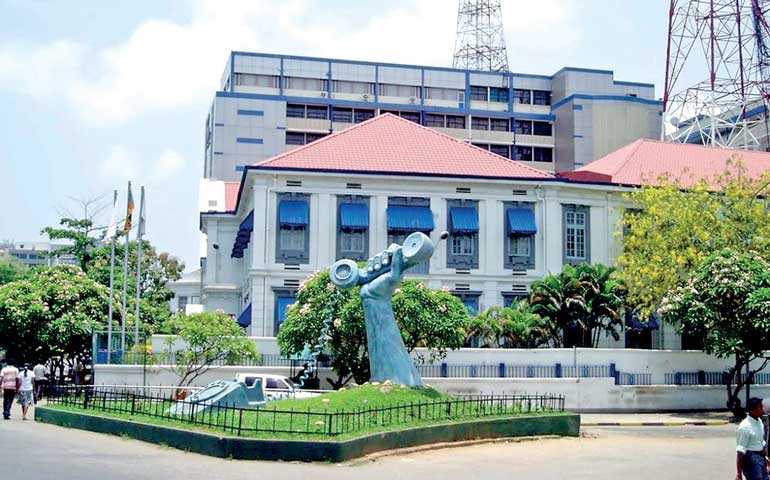Wednesday Feb 18, 2026
Wednesday Feb 18, 2026
Tuesday, 31 December 2019 00:19 - - {{hitsCtrl.values.hits}}

Unlike before when the ministers appointed their henchmen and family members, this time we see an attempt to appoint qualified “applicants” as board members to public corporations. But since they are supposed to be so successful in their professional careers, they should be able to serve the Republic without any monthly salary paid by the citizens’ treasury
I earlier wrote about ‘How to select officials to public corporations’. We see these appointments from time-to-time from the congratulatory Facebook posts by their minions with a selfie taken with the appointee.
It’s unbelievable how the Selection Panel managed to go through thousands of applications so fast. And if they actually did, why not appoint for all positions at once? But what amuses me the most is that some of the panel members themselves have taken up positions before their task is even complete!
It seems the President has partly done an organisational review as he issued an extraordinary gazette (No.2153/12 - 10/12/2019) specifying the ministries, their functions and respective institutions. It gives us a basic idea of the scale of operations.
For the purpose of this article “board members” means the chairpersons and directors or the top most decision makers appointed from outside the formal Administrative Service.
Overzealous applicants
Unlike before when the ministers appointed their henchmen and family members, this time we see an attempt to appoint qualified “applicants” as board members. And we believe that all appointments are made only from the applicants. In other words these people applied to sincerely serve the Republic with their knowledge, skills and experience, which is rather admirable.
But since they are supposed to be so successful in their professional careers, they should be able to serve the Republic without any monthly salary paid by the citizens’ treasury. For example, one of the most qualified appointments thus far has been to the Board of ICTA. Some of the board members are highly successful entrepreneurs – who we are proud of and who certainly do not need a monthly living from the public. 
Some of the appointees are former Administrative servants who already receive a pension from public money. And some others are extremely wealthy individuals who certainly do not need to depend on public money for their living.
If there is somebody who still needs a monthly pay for their living from serving as a board member, then perhaps that person is not so successful in their career anyway. Which makes it questionable whether they are capable of making strategic decisions for public institutions in the first place.
Two million something pay package
The citizens were shocked to learn that the chairperson of Sri Lanka Telecom and its subsidiaries had been paid some Rs. 2 million something every month for the past who-knows-how-many years.
Although it is commendable that the President has instructed to reduce it to some Rs. 200,000, the important finding here is that we don’t seem to have a standard remuneration structure for these boards whether as salaries, sitting fees, incentives, etc.
While it is a citizen’s right to receive a reasonable pay for any work they do, we seriously need to be equitable here. Board membership is rarely and should not be a full-time job. They meet a few times a month for a few hours, go through financial and other performance data, discuss important strategic level matters, take collective decisions and pass it down to the executives to implement.
They are accountable to the Republic, but not responsible. At least that’s how it should be. Most of the time these people sit on multiple boards simultaneously. They are chairpersons of their own enterprises, directors of other private corporations, and even board members of other public institutions. And unless they are fully retired, they spend most of their time in their regular day job as CEOs, lawyers, doctors, lecturers, etc. So the question is while we certainly value their acumen, do they really need to be paid from public money?
Standard performance incentive
One may argue that the Members of Parliament should first decline their pay and act voluntarily.
While it certainly should be the case, given that most of them are complete losers who only want to earn a fortune while robbing the citizens every day, it is meaningless to even reason this out with them. So it is up to the educated professionals and experienced entrepreneurs who so keenly applied to serve the Republic with all their heart to lead by example and decline public money as their payment. Besides, you instantly become more noble than the paid MPs.
Another argument against this would be that if they are not paid, then they will be tempted to steal.
Now that is a self-defeating argument because if any of these appointees are capable of stealing public money, then they are unsuitable to be appointed in the first place. And we have seen people like Arjuna Mahendran stealing public money even when they are paid handsomely.
The only way to curb bribery and corruption is to have strict checks-and-balances and take swift legal action against the perpetrators. Maybe they can be reimbursed with relevant out-of-pocket expenses, but that too on standard limits and criteria.
Perhaps the Parliament could design a Universal Recognition System for these board members based on their institutional performance. When you are at a board member level, your motivational factors should not be about money. It should be an intrinsic sense of challenge and accomplishment. So a periodic goal setting and public recognition system would be a much stronger motivation for them. And perhaps a standard year-end incentive could be paid based on predefined tiers.
Some of you asked me why I am not taking up any position in a public institution. My answer is that I do not wish to take up any board membership under the current context. I still like to do things my way, rather than let others do it. And I also have a problem of reporting to unqualified and corrupt ministers. I also want to retain my freedom to criticise the Government when need be.
But if I ever do take up a board membership at a public institution, I certainly will not take any payment from the citizens, because for me it would be a public service rather than a job. Now let’s see who will have the guts to set this example in reality.
(The writer is a Fellow Republican.)